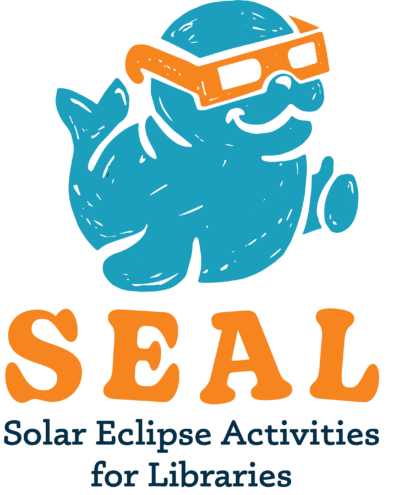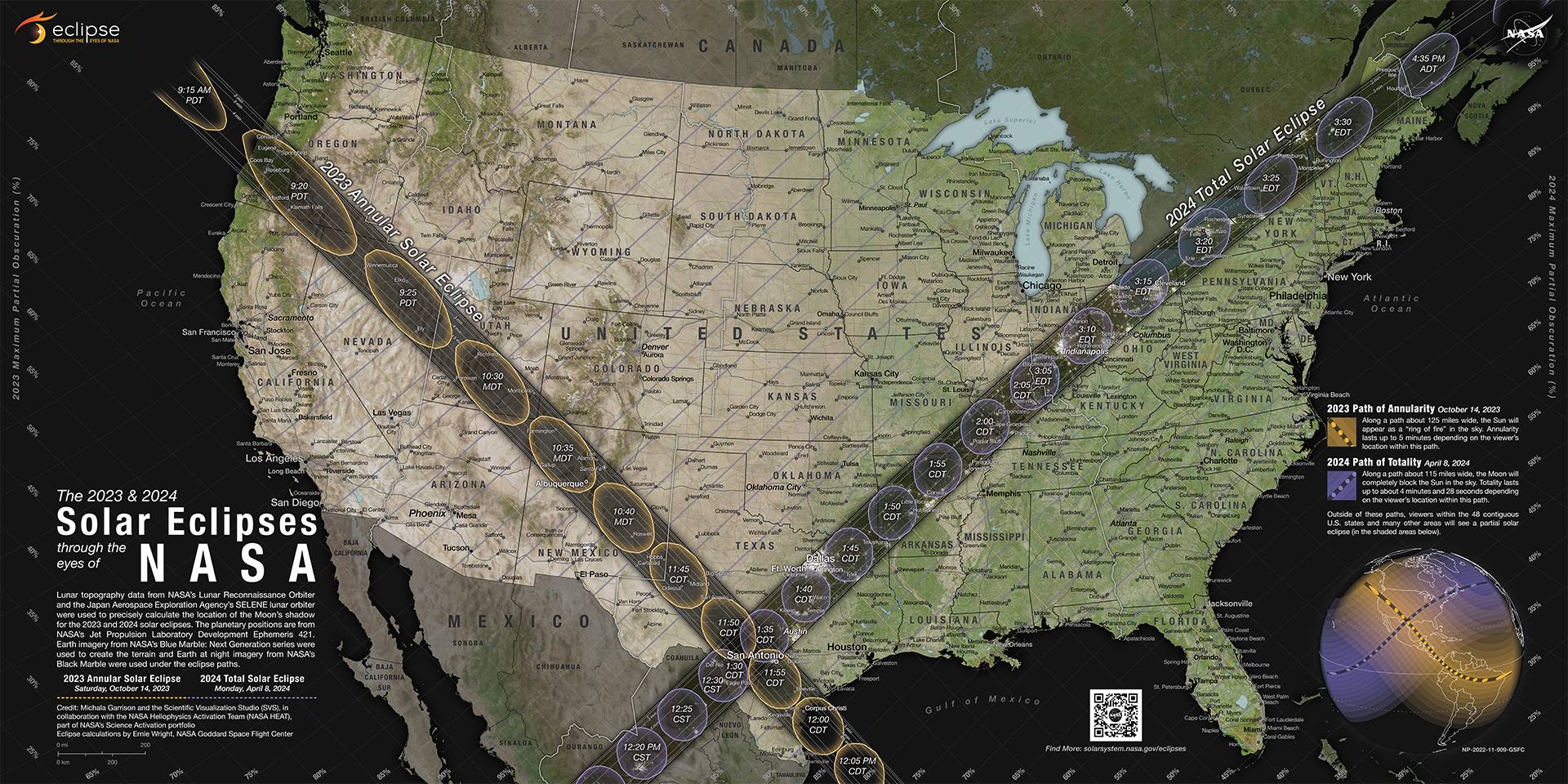The coming year is a big one for astronomy enthusiasts – the United States will see two solar eclipses in the span of just six months! An annular eclipse will occur on Saturday, Oct. 14, 2023, and a total eclipse will occur on Monday, April 8, 2024.
An annual eclipse takes place when the moon is further away from the earth in its orbit, and it cannot completely cover the sun. In this case, while most of the sun is covered, there will be a bright ring around the moon. This October, the western U.S. will be in the path of this annular eclipse; in Indiana, it will appear as a partial eclipse, meaning a large portion of the sun will always be visible.
In April 2024, however, Indiana is directly in the path for a total eclipse. A total eclipse takes place when the moon is just the right distance from the Earth, and it covers the entire sun when it moves between the sun and Earth. In this case, the path of the total eclipse will move from Northeast to Southwest Indiana; just after 3 p.m. Eastern Time, Indianapolis will experience the total eclipse. See what time the eclipse will occur over your town, as well as whether it will be a total or partial eclipse from your position, on this website.
Eclipses capture the attention of everyone, young and old alike, and many libraries want to offer programming surrounding this exciting event. STARnet, part of the Space Science Institute, has created a program called SEAL (Solar Eclipse Activities for Libraries) to assist with this. Funded by the Gordon and Betty Moore Foundation, SEAL is offering in-person and virtual trainings that highlight activities libraries can do with their patrons.
 While Indiana’s in-person SEAL training is now full, library staff can access virtual resources provided by SEAL in several places:
While Indiana’s in-person SEAL training is now full, library staff can access virtual resources provided by SEAL in several places:
- SEAL’s homepage contains information on requesting eclipse glasses along with links to many more resources, including this guide to the eclipse.
- A playlist of STARNet’s SEAL webinars on the eclipse can be found on YouTube via this link.
- Additional upcoming STARNet webinars can be found via this link.
- Read more about the eclipse and eclipse-related news on the STARNet Community blog.
Additional resources include:
- This webpage about the eclipses on NASA’s website.
No matter where your library is located within Indiana, you’re sure to have patrons interested in the eclipses. With STARNet’s resources, your library’s programmers can “shoot for the stars!”
Submitted by Beth Yates, Indiana State Library children’s consultant.

